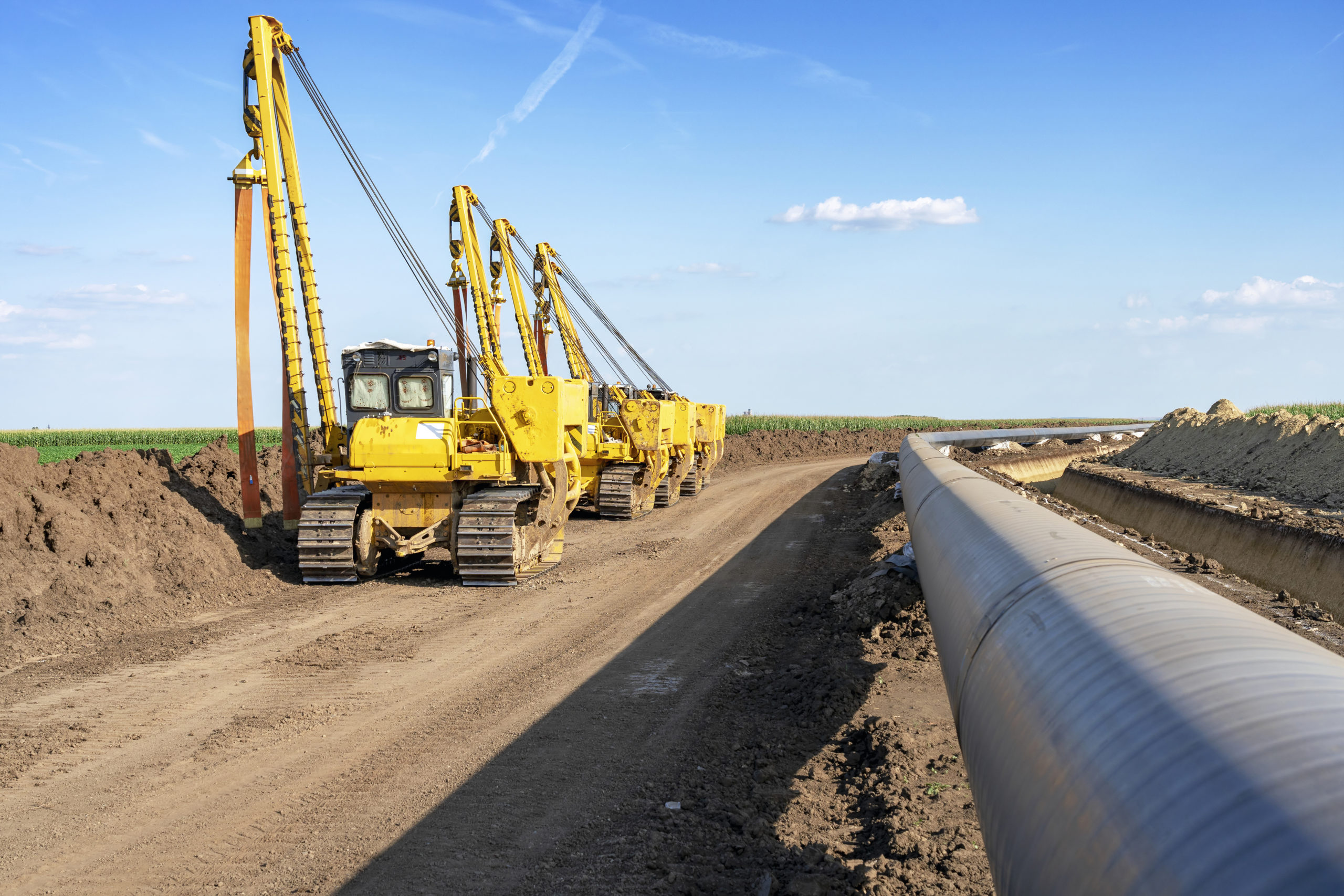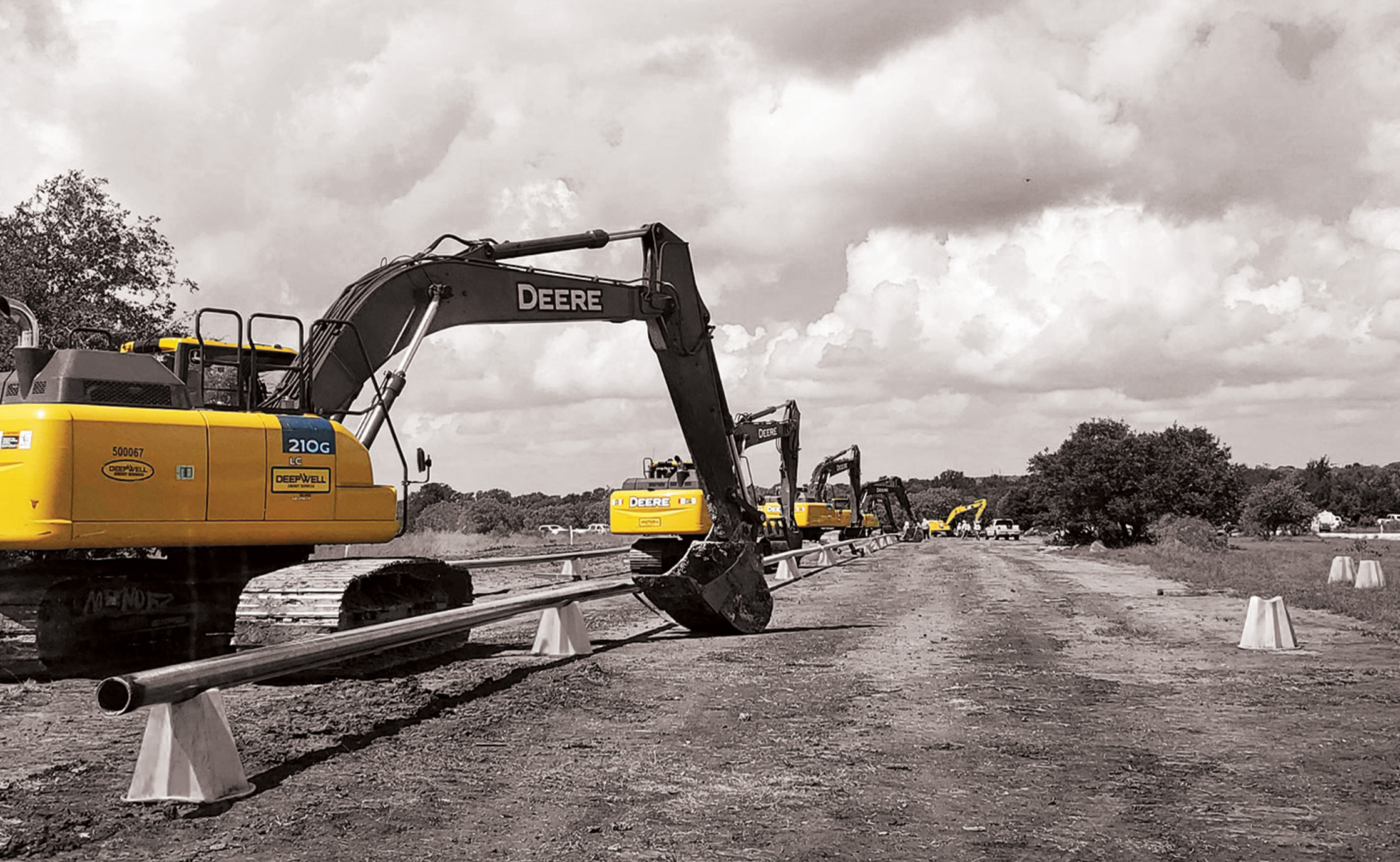Superior Rentals near me: proven strategies for choosing the right partner
Wiki Article
A Comprehensive Overview to the Numerous Kinds Of Oil Field Equipment and Pipeline Equipment Available
The oil and gas sector counts greatly on customized tools for reliable removal and transport. Numerous kinds of equipment, from piercing rigs to storage tanks, play vital functions in this complicated procedure. Each piece of tools serves distinct features that add to general operational success. Comprehending these parts is crucial for any person associated with the industry. As the market advances, so as well do the technologies that support it. What advancements are on the perspective?
Drilling Rigs: The Backbone of Oil Expedition
Drilling rigs work as the crucial machinery in the domain name of oil exploration, allowing firms to access hydrocarbon books hidden deep beneath the Earth's surface area. These rigs come in different kinds, including land rigs, offshore rigs, and mobile systems, each designed to run in particular settings. Furnished with advanced technology, drilling rigs can permeate geological developments with precision, making sure efficient resource removal. The structural honesty and operational abilities of these rigs are critical, as they need to hold up against extreme conditions and considerable stress. Moreover, the option of a boring gear influences the overall job expense and timeline, making it a vital factor to consider for oil firms seeking to optimize their exploration efforts and maximize productivity in their operations.Pumps: Important for Liquid Motion
In the oil removal procedure, the duty of pumps is considerable, facilitating the movement of liquids throughout different stages of manufacturing. Pumps are important for transferring crude oil, water, and other liquids from below ground reservoirs to the surface and after that via pipes to refineries. They can be found in numerous kinds, consisting of centrifugal, positive displacement, and completely submersible pumps, each offering certain objectives based on the fluid qualities and operational needs. Centrifugal pumps are generally utilized for their effectiveness in high-flow applications, while positive variation pumps master taking care of viscous fluids. The selection of pump effects general efficiency, functional security, and maintenance prices. Appropriate selection and maintenance of pumps are important for optimizing manufacturing and lessening downtime in oil field procedures.Shutoffs: Controlling Circulation and Pressure

Shutoffs play a crucial duty in managing the circulation and stress of liquids within oil areas and pipes. Numerous kinds of shutoffs serve distinct applications, each designed to meet certain features essential for reliable procedure - Superior Oilfield Rentals Texas. Comprehending the attributes and uses these shutoffs is necessary for enhancing system performance and security
Types of Valves
Important components in oil area procedures, shutoffs play a critical duty in regulating the circulation and stress of liquids within pipes and devices. Various kinds of shutoffs are made use of to satisfy the diverse needs of oil and gas manufacturing. Typical kinds include gateway shutoffs, which supply a straight-line circulation and very little pressure decline; world valves, known for their throttling capacities; and ball shutoffs, acknowledged for their quick on/off control. Additionally, check shutoffs stop backflow, while butterfly shutoffs offer a light-weight option for regulating circulation. Each valve type is created with particular products and setups to stand up to the extreme problems frequently discovered in oil fields, making sure dependability and efficiency in procedures. Comprehending these types is crucial for effective system monitoring.Valve Applications and Features
While various kinds of valves serve distinct purposes, their key applications focus on regulating circulation and pressure within oil and gas systems. Shutoffs such as gate, world, and ball valves control fluid activity, making sure peak performance and safety. Entrance valves are commonly used for on/off control, providing marginal circulation resistance. Globe valves, on the other hand, deal precise circulation regulation, making them ideal for strangling applications. Sphere shutoffs are preferred for their quick operation and tight securing capacities. Additionally, pressure safety valve are important for preventing system overpressure, securing tools integrity. In general, the proper option and application of shutoffs enhance operational efficiency, ensuring the reliable transport of oil and gas through pipes and processing centers.Compressors: Enhancing Gas Transportation
Compressors play a critical role in the reliable transportation of gas, ensuring that it relocates efficiently via pipelines over lengthy ranges. These gadgets raise the pressure of natural gas, enabling it to get over friction and elevation modifications within the pipeline system. In addition, compressors facilitate the balancing of supply and demand, fitting variations in intake and production rates. Different types of compressors are used in the sector, consisting of centrifugal, reciprocating, and rotary screw compressors, each offering distinct advantages based upon the functional needs. Regular maintenance of these compressors is necessary to make the most of efficiency and minimize downtime, ultimately adding to a reliable gas transport network. Their essential feature emphasizes the significance of compressors in the general oil and gas facilities.Storage Tanks: Safe and Efficient Fluid Monitoring
Reliable transport of natural gas counts on different supporting systems, one of which is the proper management of tank. These storage tanks play a vital role in securely containing fluids, guaranteeing that functional efficiency is kept while reducing ecological risks. Created from resilient products, they are developed to withstand high stress and corrosive components. Properly sized and tactically situated, storage containers assist in the smooth flow of natural gas and various other fluids, preventing traffic jams in supply chains. Routine upkeep and monitoring are imperative to find leaks or architectural issues, advertising safety and security and conformity with regulative requirements. Inevitably, the reliable management of storage containers is important for the general honesty and reliability of the oil and gas market's liquid handling systems.
Pipeline Systems: Framework for Transport
Pipeline systems act as the foundation of the oil and gas sector, assisting in the efficient transportation of hydrocarbons over substantial ranges. These systems include various elements, including pipelines, valves, pumps, and compressors, all thoroughly made to assure seamless flow. The products used in pipeline construction, commonly steel or high-density polyethylene, are chosen for sturdiness and resistance to deterioration. Pipeline networks can span across land and water, connecting manufacturing websites to refineries and circulation centers. Furthermore, advanced modern technology enables real-time surveillance of flow prices and stress degrees, improving operational effectiveness. The calculated positioning website of these pipelines lessens ecological impact while making best use of resource ease of access, consequently playing an essential role in meeting energy demands globally.Security Equipment: Making Sure Employee and Environmental Defense
The procedure of pipeline systems, while essential for energy transportation, also offers considerable security challenges for employees and the setting. Safety tools plays a considerable role in minimizing these dangers. Personal safety equipment (PPE) such as helmets, gloves, and non-slip shoes safeguards workers from physical hazards. Furthermore, gas detection systems check for leaks, ensuring that dangerous substances do not posture a risk to employees or the surrounding community. Emergency situation shutdown systems are important for quickly stopping operations during a crisis, protecting against prospective catastrophes. Spill containment products, including absorbents and obstacles, are basic for reducing environmental influence. Overall, spending in all-inclusive safety tools is important for maintaining functional stability and protecting both employees and the environment in the oil and gas field.
Regularly Asked Concerns
How Do I Pick the Right Oil Field Equipment for My Project?
Picking the ideal oil field equipment involves reviewing job specs, budget restraints, and functional requirements. Take into consideration elements such as tools integrity, compatibility with existing systems, and the vendor's credibility to guarantee peak efficiency and safety.What Are the Upkeep Needs for Oil Field Equipment?
Upkeep requirements for oil field devices include routine inspections, lubrication, and prompt repair services. Operators ought to likewise stick to supplier standards, monitor efficiency metrics, and warranty compliance with security guidelines to boost longevity and performance.
How Can I Ensure Compliance With Environmental Rules?
To ensure conformity with ecological laws, companies need to carry out regular audits, apply best methods, spend in training, keep correct paperwork, and stay updated on regulations (Superior Oilfield pipeline equipment rentals). Collaboration with ecological firms can also boost adherence to policiesWhat Is the Typical Lifespan of Pipeline Equipment?
The ordinary lifespan of pipeline equipment generally ranges from 20 to 50 years, relying on factors such as material quality, environmental problems, and upkeep methods. Regular examinations can considerably influence long life and functional performance.How Do I Securely Deliver Oil Field Equipment to Remote Locations?
Carrying oil area devices to remote locations requires careful preparation, consisting of path analysis, protecting authorizations, utilizing suitable lorries, and guaranteeing safety and security procedures are adhered to. Proper training and interaction among teams are important for successful transport.Report this wiki page